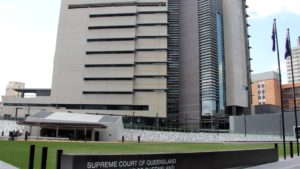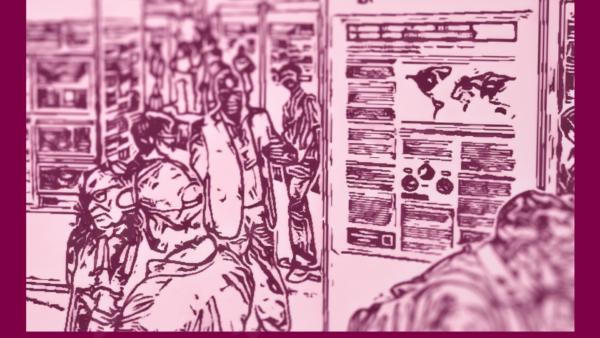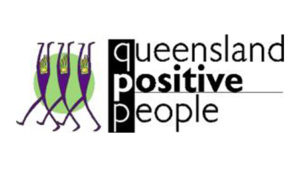Overview
Queensland does not have an HIV-specific law, but the general criminal law has been used to prosecute people for HIV ‘exposure’ and alleged transmission.
People living with HIV have been prosecuted on a range of general harm provisions. Where transmission occurs, section 317 of the Criminal Code, ‘acts intended to cause grievous bodily harm and other malicious acts’, can be used, as it defines grievous bodily harm to include the transmission of a ‘serious disease’. Section 320 meanwhile can be applied in cases involving grievous bodily harm without intent to cause that harm. The penalties are up to life imprisonment, and up to 14 years’, respectively. The offence of serious assault (section 340) has also been used in cases involving assaults on police officers.
Section 143 of the Public Health Act may also apply in cases of transmission as well as ‘exposure’. It makes it an offence for someone to ‘recklessly put someone at risk of contracting a controlled notifiable condition’, or to transmit such a condition. Although HIV is not explicitly mentioned, it is such a condition. Disclosure is a full defence to this provision. The penalties available are a fine or up to 18 months’ (‘exposure’) and up to two years’ (transmission) imprisonment.
We are aware of at least nine cases of HIV criminalisation in Queensland, all of which have involved male accused. Five cases have involved alleged ‘exposure’ and transmission through biting and spitting, while the remaining four involved alleged sexual transmission.
Cases have been brought for incidents in which the risk of transmission was little to none, such as through biting and spitting incidents. For instance, an early case (1989) related to an erroneously presumed HIV ‘exposure’ after a person rubbed faeces on a police officer’s face. Similarly, in a 2008 case a man living with HIV was sentenced to 12 months’ imprisonment for a bite on a police officer which did not draw blood, and a 2014 case seemingly also involved a bite without drawing blood. Another case from 2019 involved a man who claimed he had HIV (but likely did not) and accidentally spilled blood on a police officer while in a drug-induced psychosis. The man received a two-year sentence, reduced to one year on appeal, for a range of offences including serious assault on a police officer. More recently, in a case reported in June 2023, the HIV status of a man who allegedly bit a police officer, drawing blood, may have been a factor in sentencing. The man was convicted on a string of charges under general harm offences, and received a sentence of 18 months’ imprisonment, with the judge’s reasoning suggesting that his HIV status was a contributing factor.
All other cases have related to alleged transmission during unprotected sex. In all of these cases, the conduct involved was unprotected sex without disclosure of HIV status. The first case for which we received media reports was in 2012, however there may be an additional case in 2007 in which an accused was found not guilty (not included in the case count above). The 2012 case involved a charge under section 143 of the Public Health Act for allegedly creating a risk of disease transmission after having unprotected sex with two men without disclosing his status. Another case involving unprotected sex occurred the following year, which possibly resulted in transmission.
A precedent-setting case initially litigated in 2013 involved an accused who, it was originally reported, may have ‘exposed’ more than a hundred women to HIV. He was later charged and convicted of ‘unlawfully transmitting a serious disease to another with intent do so’ under section 317(b) of the Criminal Code, in relation to repeated unprotected sex with one woman, his former partner. He unsuccessfully appealed to the Court of Appeal of the Supreme Court of Queensland, and then took his case to Australia’s High Court. The High Court considered the meaning of ‘intent’ within the charge. The Court agreed that the accused had lied to the complainant about his HIV status numerous times during and after their relationship but found that neither the frequency of unprotected sex nor his lies were enough to demonstrate intention to transmit HIV. Rather, his actions showed an intention to have unprotected sex. Further, it found that foresight of a risk of harm is different from the intent to produce harm. The Court was not satisfied that the accused meant to produce the particular result or had the result as his purpose or object at the time they engaged in the conduct. The High Court substituted a guilty verdict of a lesser offence: grievous bodily harm (section 320). The man was eventually deported to his native Zimbabwe following the conclusion of the legal process in 2016.
A further case in 2017 involved a grievous bodily harm charge for alleged HIV transmission after having unprotected sex with a woman several times.
Queensland also has a public health Protocol for the Management of People Living with HIV who Place Others at Risk, with a five level framework ‘designed to facilitate behavioural change in those who have not responded to initial interventions at the local level or are unable to change their risk behaviours’. The public health provisions are managed by health department staff, ranging from supportive interventions at a clinical level to, if a person fails to follow directions, detention. The Guidelines state that preference should be given ‘to strategies that are least restrictive, as these will generally be the most sustainable and effective in the long term’. The Guidelines are intended to align with the National Guidelines for Managing HIV Transmission Risk Behaviours which state that the least coercive actions should be used first, aiming to place the person under the least restriction possible, and to de-escalate or discharge the person from management.
Laws
Criminal Code Act 1899
Section 317. Acts intended to cause grievous bodily harm and other malicious acts
(1) Any person who, with intent–
(…)
(b) to do some grievous bodily harm or transmit a serious disease to any person; or
(…)
either–
(e) in any way unlawfully wounds, does grievous bodily harm, or transmits a serious disease to, any person, or;
(…)
is guilty of a crime and liable to imprisonment for life.
Section 320. Grievous bodily harm
(1) Any person who unlawfully does grievous bodily harm to another is guilty of a crime, and is liable to imprisonment for 14 years.
Section 340. Serious assaults
(1) Any person who—
(…)
(b) assaults, resists, or wilfully obstructs, a police officer while acting in the execution of the officer’s duty, or any person acting in aid of a police officer while so acting;
(…)
is guilty of a crime.
Maximum penalty—
(a) for subsection (1) (b) , if the offender assaults a police officer in any of the following circumstances—
(i) the offender bites or spits on the police officer or throws at, or in any way applies to, the police officer a bodily fluid or faeces;
(…)
—14 years imprisonment; or
(b) otherwise—7 years imprisonment.
Public Health Act 2005
Section 143. Person must not recklessly spread controlled notifiable condition
(1) A person must not recklessly put someone else at risk of contracting a controlled notifiable condition.
Maximum penalty—200 penalty units or 18 month’s imprisonment.
(2) A person must not recklessly transmit a controlled notifiable condition to someone else.
Maximum penalty—400 penalty units or 2 years imprisonment.
(3) A person does not commit an offence against subsection (1) if, when the other person was put at risk of contracting the condition, the other person—
(a) knew the person had the condition; and
(b) voluntarily accepted the risk of contracting the condition.
(4) A person does not commit an offence against subsection (2) if, when the condition was transmitted to the other person, the other person—
(a) knew the person had the condition; and
(b) voluntarily accepted the risk of contracting the condition.
Acknowledgements
Our thanks to Australian law firm Hall & Wilcox for their research assistance to confirm current relevant legislation.





